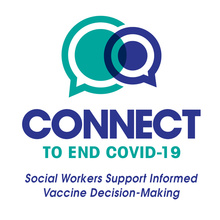
Long COVID (also known as Post-COVID) was added as a disability under the American Disabilities Act (ADA) in July 2021. A student who is experiencing difficulties in school related to COVID-19 may need to receive accommodations and/or special education and supplementary aids and services to boost academic engagement, counseling, and a positive behavioral support plan to improve on-task behaviors as well as instruction in adaptive responses to stress or trauma triggers. Post-secondary students who have Long COVID may have an educational disability and need reasonable accommodations. Students typically work with a post-secondary institution's disability service to determine these appropriate accommodations.
New variants of COVID-19 will continue to emerge. Although people who are up to date on vaccinations can experience a breakthrough infection, they are much less likely to become severely ill, develop Long COVID, or die. School social workers provide information to students and play a critical role in supporting students and families as they transition to college, often consulting with disability and support offices of higher education. The Connect to End COVID-19 section of the NASW website provides visual graphics, fact sheets, and tips for communicating with young adults and families about COVID-19.
NASW. Practice. Section Infection Diseases. Retrieved May 11, 2023 from https://www.socialworkers.org/Practice/Infectious-%20Diseases/COVID-19-Vaccine-Confidence
US. Department of Education’s Office for Civil Rights (OCR) and the Office of Special Education and Rehabilitative Services (OSERS).(2021, July). Long-Covid and Educational Accommodations: U.S. Department of Education’s Office for Civil Rights (OCR) and the Office of Special Education and Rehabilitative Services (OSERS)’s Resource to Support Children, Students, Educators, School Service Providers and Families. https://www2.ed.gov/about/offices/list/ocr/docs/ocr-factsheet-504-20210726.pdf